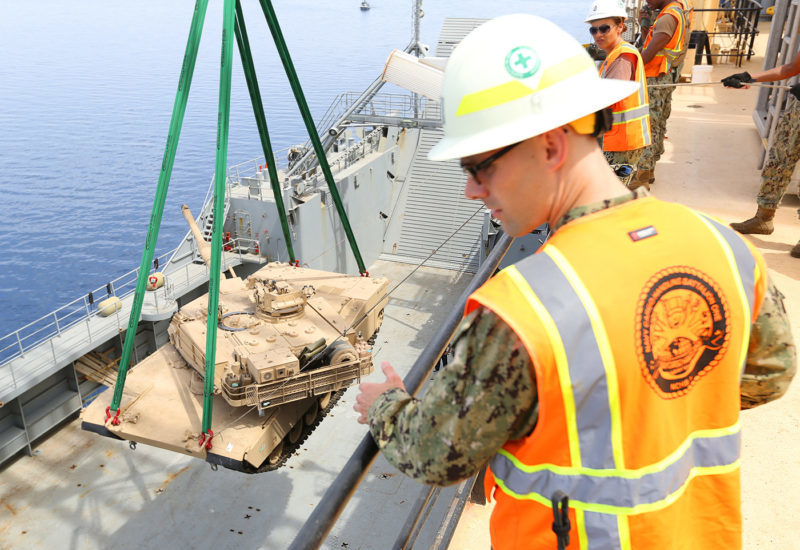The U.S. Maritime Administration’s Military to Mariner program got a boost from the White House in March when President Trump signed an executive order to help seagoing military veterans transition to life and work in the civilian merchant marine.
The March 4 order would waive government-issued licensing fees and allow military sea experience to count toward merchant mariner credentialing, reforms sought by the maritime industry and veteran’s groups.
Trump said the order achieves two goals: boosting the sagging merchant marine and providing high-paying job opportunities to veterans.
The number of civil mariners who can be called up by the Navy has dropped in recent decades, raising concerns that the military would not have the shipping support it needs during a military conflict.
Military readiness requires “a sufficient corps of credentialed merchant mariners available to crew the necessary sealift fleet,” Trump said in announcing the order. “Attracting additional trained and credential mariners, particularly from active duty service members and military veterans, will support national security and provide well- paying jobs to veterans.”
Specifically, the order gives the Defense Department and Homeland Security one year to identify all military training and experience that may qualify for merchant mariner credentials and submit that list to the Coast Guard, which will determine whether these experiences count for credentialing.
It also calls for the Coast Guard’s National Maritime Center to waive all fees related to license evaluation, issuance and examination for active duty service members who qualify, as well as fees to obtain a Transportation Worker Identification Credential card (TWIC).
Peter Navarro, the White House director of trade and industrial policy, told reporters at a briefing that these licensing and credentialing fees could cost as much as $25,000.
To help service members leaving active duty transition to maritime work quickly, the order requires that they receive their certifications or verifications of sea service no later than one month after they leave the military.
The maritime industry has welcomed former sea-going military members into maritime careers, saying they possess the experiences and skills necessary for job success.
“While the merchant marine is not a uniformed service, the relationship between the merchant marine and the uniformed services is clear, and the lifestyle is similar,” Augie Tellez of the Seafarers International Union told a recent hearing before the House Coast Guard subcommittee.
He said waiving the licensing and credentialing fees removes “one barrier to entry” for veterans looking to embark on a maritime career. He also said it would help to allow acceptance of a valid military Common Access Card in the place of a TWIC, and to accept a recent military physical examination in lieu of a mandated maritime related physical. “This would reduce duplicative burdens on former service members,” he said.
The inland industry has benefited from access to this broadened labor pool, according to Austin Golding, president of Golding Barge Line, Vicksburg, Miss.
“Military veterans have found our industry as a great second career option,” he recently told a Senate hearing. “When veterans enter our ranks they understand chain of command, being away from home and working as a team to accomplish a task safely. We take great pride in employing our country’s veterans and offering them a chance to capitalize the skills they developed in the military. Many of these veterans become great leaders on board and find our industry to be a perfect fit.”




